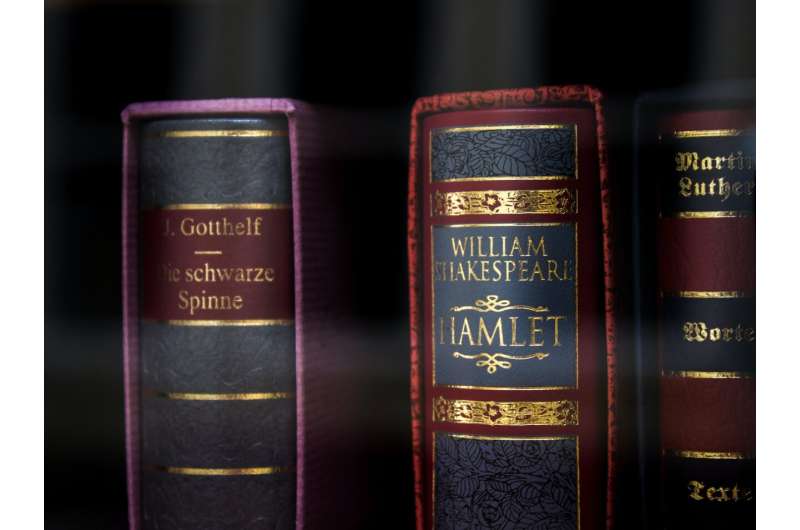This article has been reviewed according to Science X's editorial process and policies. Editors have highlighted the following attributes while ensuring the content's credibility:
fact-checked
proofread
Historians and literary scholars tackle the Shakespeare authorship question

The Journal of Scientific Exploration (JSE), an open access journal, has published its summer issue, which is specially devoted to what is known as the Shakespeare authorship question (SAQ).
In the issue, 10 historians and literary scholars present evidence that casts serious doubts about who actually authored the monumental works credited to William Shakespeare. Suggesting that the name is actually a pseudonym for someone else, this position has been endorsed by numerous artists and scholars over the decades ranging from Walt Whitman and Mark Twain to Sigmund Freud, Tyrone Guthrie (founder of Canada's Stratford Shakespeare Festival) and Mark Rylance founding Artistic Director of the reconstructed Globe Theater in London.
Tradition credits a businessman from an essentially illiterate family in Stratford-Upon-Avon named "Will Shakspere" as being the author of the Bard's 37 plays, two major narratives in verse, 154 sonnets, and the man who introduced upwards of 1,700 original words into the English language.
However, many historians, literary researchers, and theater professionals over the centuries have been enormously skeptical of the attribution. The debate that has ensued―with several hundred books having now been published on the subject―is at the core of the SAQ.
"Academic honesty and the historical record do matter," said Don Rubin, Professor Emeritus of Theater at Toronto's York University and Guest Editor of the issue. President of the Shakespeare Authorship Coalition (doubtaboutwill.org)
Prof. Rubin argues that "from an intellectual standpoint, the real conspiracy theory is why those who hold with the Stratford man as author are so absolutely unwilling to read contradictory research in their own field and to encourage openness about these alternative ideas within academe. Most simply don't know the depth and detail of the alternative arguments."
While the JSE does not officially endorse particular claims related to any frontier science topic, its editorial team did agree that there was more than ample evidence in this instance to open up the SAQ to scholars in other fields. Thus, this special JSE issue about what has been termed by many 'history's greatest mystery.'
More information: Brian Robert Laythe, Full Issue JSE 37:2 Summer, Journal of Scientific Exploration (2023). DOI: 10.31275/20233145. www.journalofscientificexplora … on.org/index.php/jse
Provided by Society for Scientific Exploration




















